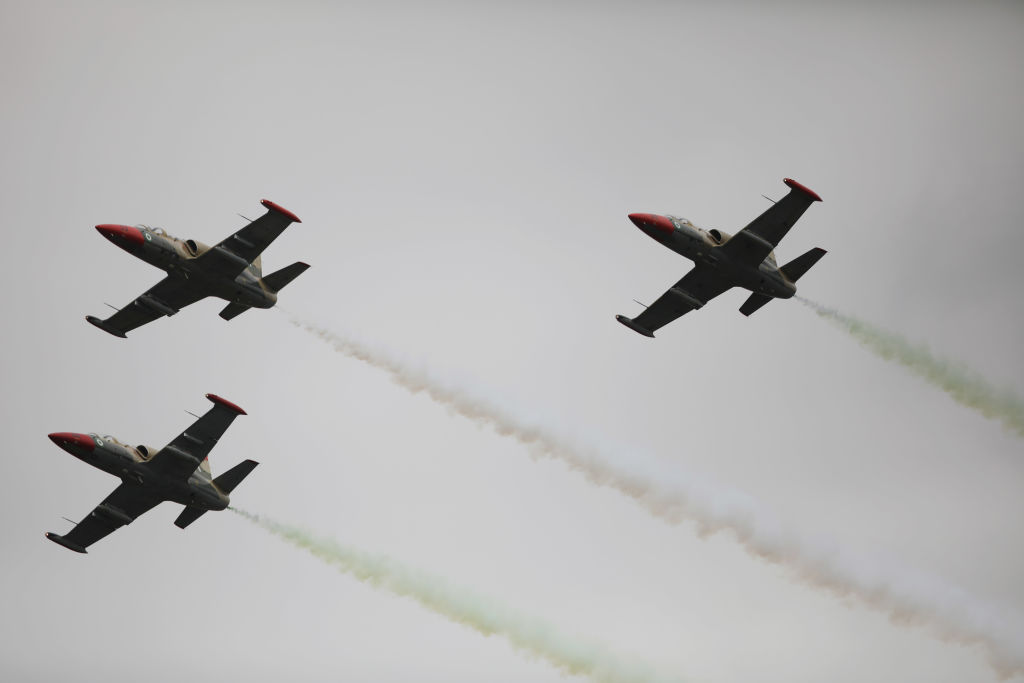Nigerian Airstrikes Taking Major Toll on ISWAP
ADF STAFF
Fourteen years into its fight against violent extremist organizations (VEOs) in the Lake Chad Basin, Nigeria is finding success from above, forcing militants to scatter and change tactics.
Zagazola Makama, a counterinsurgency expert and security analyst in the Lake Chad region, often is asked how the Nigerian military has managed to push back against VEOs in the country’s restive northeast.
“My answer always is that the airpower is the game changer,” he told ADF.
“The dominant feature of Nigeria’s counterinsurgency theater is the effective synergy and collaboration between the surface and air assets, which has ensured the steady decimation of the adversary.”
In recent months, airstrikes by the Nigerian Air Force (NAF) in Borno State have decimated Boko Haram and halted the momentum of the Islamic State West Africa Province (ISWAP).
Makama, who operates a news website from Borno’s capital, Maiduguri, and has tens of thousands of social media followers, has reported extensively on the NAF’s recent successes in which hundreds of militants and several top commanders were killed.
Those victories have prompted a number of changes to ISWAP’s tactics.
“After suffering strings of heavy losses from relentless airstrikes by the Nigerian Air Force, ISWAP proved to be less willing to go on the offensive,” he said.
“The group has shifted its fighting strategies to avoid mass gathering, establish hamlets under trees, launch attacks only during the night, and encourage use of motorcycles instead of pickup trucks that can be easily spotted by intelligence, surveillance and reconnaissance (ISR) operations.”
In early July, the terror group responded in the Marte local government area by targeting and threatening civilians itsuspected of spying and reporting to security forces.
ISWAP fighters killed seven farmers in a retaliation attack on Krenoa, a village about 10 kilometers northeast of Marte.
“There were initially eight men on the farm when they launched the attack. However, the youngest among them managed to hide and later escape,” a local fish merchant told HumAngle news website.
The militants accused the farmers of “aiding soldiers in identifying their positions for an airstrike.”
ISWAP fighters also responded by banning farmers, fishermen and herders from large chunks of the lands on which they work and subsist.
“These might affect the cropping season, especially if they continue to bar farmers from going to tills in this crucial stage of the rainy season,” Bukar Adam, a Maiduguri-based trader from Marte, told HumAngle.
HumAngle, an Abuja-based news website, reported that these communities along the shores of Lake Chad “are now experiencing the dual challenge of a terrorist presence and the restriction of access to their farmlands.”
“The ban by ISWAP on farming in these remote areas illustrates the complex challenges facing the region, where the fight against terrorism intersects with the daily struggle for survival.”
ISWAP’s actions represent a shift in tactics, as it now firmly pits the insurgents against villagers and ultimately makes it harder for them to maintain control in the region.
Makama credited Nigeria’s acquisition of 12 A-29 Super Tucano light attack planes from the United States and the development of Nigerian-made drones with improving the NAF’s air superiority.
He said the NAF’s rapid dissemination of ISR information has been another key factor in the Nigerian military taking the fight to the extremists.
“The strategy of exquisite intelligence obtained via persistent ISR helped the NAF continue to destroy often well-fortified Boko Haram and ISWAP camps and meeting points, protecting civilians, and minimizing collateral damages,” Makama said.
“In a desperate move to show that they are still operating as a fighting force, ISWAP resolved to attack targets of opportunity and soft targets in locations with less security presence while their fighters have had to retreat to the [patches of islands known as] Tumbuns of Lake Chad.”


Comments are closed.